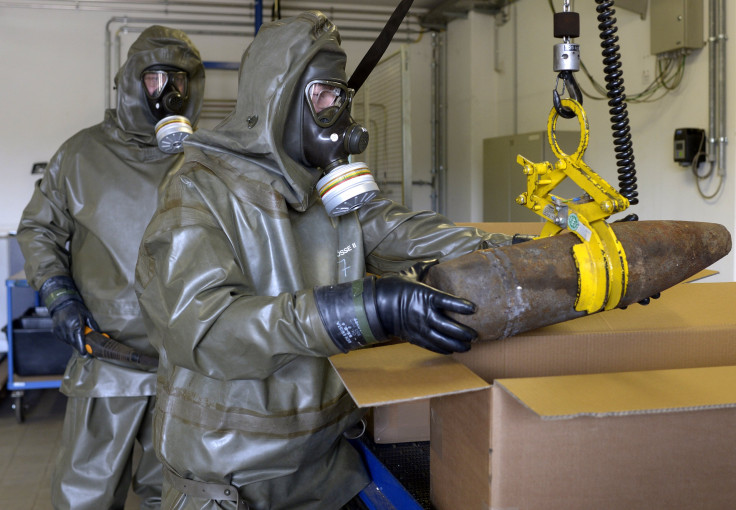Destruction Of Chemical Weapons Declared By Syrian Government Almost Complete, Says UN

Nearly 98 percent of Syria’s declared chemical weapons have been destroyed and all disclosed chemical materials have been removed from the country, the United Nations Security Council’s current president said on Wednesday, according to media reports. He also added that the demolition of a dozen remaining chemical weapons production facilities in Syria is scheduled to begin later this month.
“There are seven hangars and five underground tunnels, which need to be destroyed,” Gary Quinlan, Australia’s ambassador to the U.N. and the current Security Council president, reportedly said after meeting with Sigrid Kaag, a special adviser on Syria's chemical weapons program. “The destruction is scheduled to commence later this month and likely to be completed ... around the summer of next year.”
Quinlan also added that the team from the Organization for the Prohibition of Chemical Weapons, or OPCW, which is overseeing the destruction of Syria’s chemical weapons stockpile, had discovered four new chemical weapons sites in the last two months, including a ricin production facility, which had not been previously disclosed by the Bashar Assad government, according to media reports.
“So now the question is -- sorting out, in Damascus, precisely what is done with those,” Quinlan reportedly said. “There's an OPCW team in Damascus right now which is looking at a range of these sorts of issues.”
However, Bashar Jaafari, Syria’s ambassador to the U.N., reportedly dismissed allegations that Damascus had attempted to hide the true extent of Syria’s chemical weapons program. He added that his government is ready to resolve all remaining “technical stuff related to the so-called Syrian chemical program.”
“My country and my government are fully engaged, committed towards continuing cooperating with the OPCW to solve all the remaining technical issues,” Jaafri reportedly said.
The Syrian government had agreed to eliminate its chemical weapons program after a sarin attack in August last year killed hundreds of people in Ghouta, a neighborhood on the eastern outskirts of Damascus.
Although Assad has consistently denied using chemical weapons to target rebel strongholds, French and British government officials have alleged that there is strong evidence that Syria is not only using chlorine gas as a weapon, it also possesses rockets capable of carrying a chemical warhead similar to the one used in the Ghouta attack.
© Copyright IBTimes 2024. All rights reserved.






















